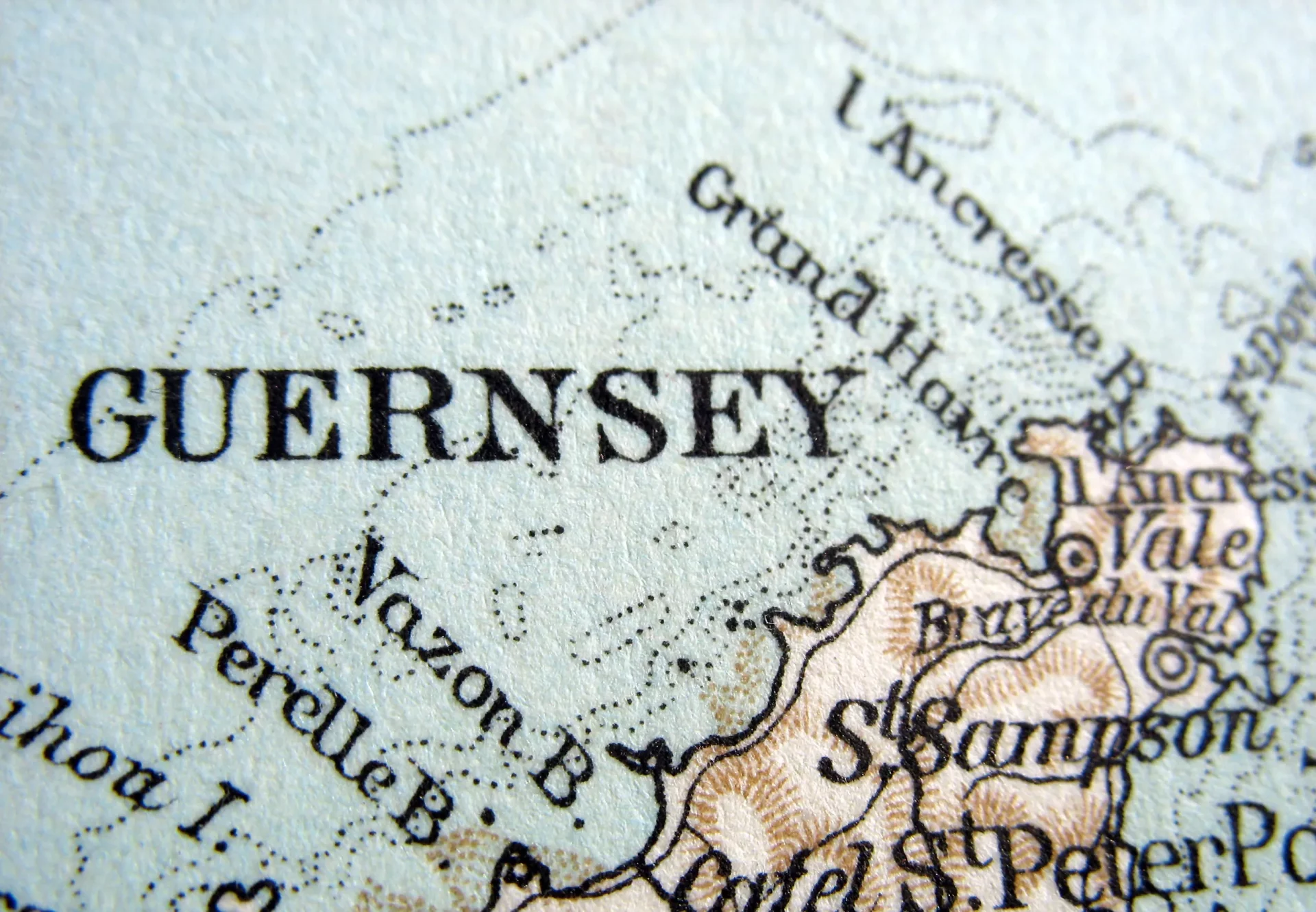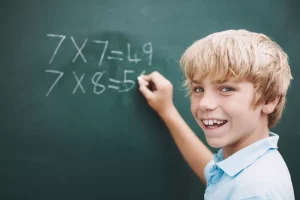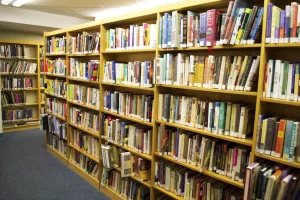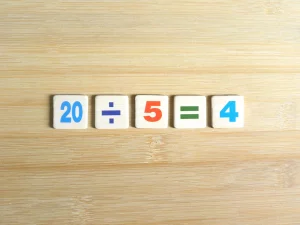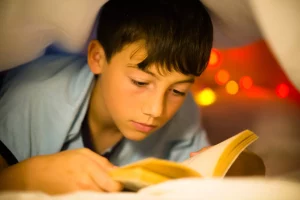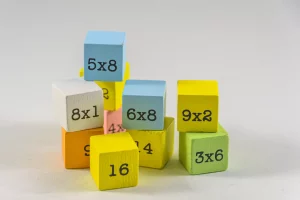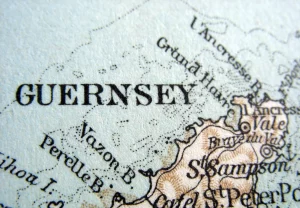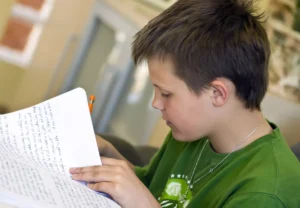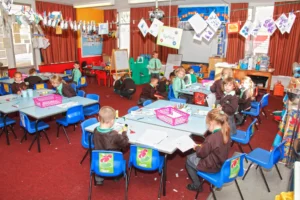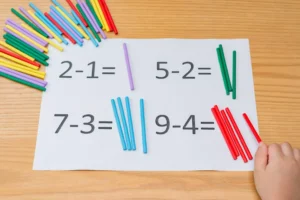As your child moves into the Secondary sector of Guernsey’s education system, they will join one of four high schools: St Sampson’s, Les Beaucamps, La Mare de Carteret or Guernsey Grammar School). From September 2025, La Mare and the Grammar will be consolidated into one school called Les Varendes High School. Other options for secondary education in Guernsey are found in the private sector at The Ladies College, Elizabeth College and Blanchelande College. Each of these schools provide a slightly different offering, and entrance is by exam.
You’ll see from the curriculum outlined below, that the level of maths expected is a significant step up from what is taught in Guernsey primary schools. Your child’s teacher or maths tutor will of course guide them as they work toward GCSE level, but it is not unusual for children to require some additional support in this area, and our Guernsey maths tutors frequently work with children on the key stage 3 curriculum.
Most of Guernsey’s high schools stream children in key curriculum areas, including maths, and this is usually based on initial assessments undertaken in the first few weeks at their new school. This will inform the pace and complexity of the maths curriculum they study, and in many cases which level of GCSE examination they are entered for. Your child’s teacher or maths tutor will be able to give you more specific information during parent appointments.
So, what does maths look like in a Guernsey high school? Firstly, the Bailiwick of Guernsey maths curriculum only dictates content and entitlement for children up to Year 9; following GCSE study and curriculum will depend on which exam board your child’s school or maths tutor uses.
There are several strands of learning which permeate through the entire maths curriculum:
- Explaining and justifying strategies and solutions using mathematical language
- Using maths in real world contexts
- Choose and use appropriate maths to investigate a range of problems
- Explore numbers through practical and visual resources (even at high school level!)
- Use known facts to check work
- Use appropriate methods of calculation; mental, written or calculator
- Layered on top of these skills are the specifics of each area, namely number, shape and measure, data handling, and algebra.
Number KS3
There are several elements in this section of the maths curriculum which our maths tutors in Guernsey commonly support students with, especially learning around fractions, percentages and ratio.
-
- Understand and interpret standard form
- Use estimation and rounding in a range of contexts
- To understand the highest common factors and identify properties of numbers including prime factors, index notation beyond squares and cubes and be able to apply them in a range of contexts
- To use appropriate written methods across all 4 operations using whole numbers and decimals
- Use, recognise, order and calculate using fractions, decimals and percentages
- Use multipliers for percentage changes
- Calculate proportion and compare ratio using the unitary method and divide a quantity into a given ratio
- Use order of operations in calculation with negative numbers and fractions
Shape and Space KS3
Many children find the application of formulae relating to shape tricky, and developing the foundation skills in geometry with a maths tutor or teacher will make future work in this area at GCSE level more accessible.
-
- Understand plans and elevations from 2D or 3D shapes
- Draw 3D shapes in 2D formats
- Understand congruence and the similarity of shapes
- Draw tessellated shapes and continue a pattern
- To reflect 2d shapes on given lines of symmetry eg. y=3, y=x
- To rotate 2d shapes given the centre of rotation, angle and direction
- Enlarge 2d shapes given scale factors (negative and fractional) and translate 2d shapes using vectors
- Convert between a range of units and solve problems numerically or using a graph
- Use formulae to calculate area, perimeter, volume and surface area of 3D shapes, circlers and more complex shapes
- Explore angles, bearings, interior and exterior angles, and parallel lines
- Use trigonometry
- Solve problems involving distance, measure and time, using compound time
- Use constructions and loci with increasing accuracy to solve problems in context
Data Handling KS3
-
- Use mathematical knowledge, language and understanding to formulate and explain hypotheses
- Make decisions on what data to collect, how to collect it and how to record it using increasingly larger sets of real life data
- Understand and construct scatter graphs, frequency polygons, stem and leaf charts, boxplots and histograms to display data
- Create and interpret line graphs where the intermediate values have meaning
- Use observations, measurements or other data to draw conclusions and explain evidence using detailed mathematical language and understanding
- Use and calculate mean, median mode and range to summarise and compare within increasingly complex data sets
- Work out averages from frequency tables and diagrams and understand the advantages/ disadvantages of the different averages
- Understand probability of mutually and non mutually exclusive events
- Express probability as fractions, decimals and percentages
Algebra KS3
This is an area in which our Guernsey maths tutors have a significant amount of experience. If you remember your own GCSE maths learning, you’ll see that a number of skills which were formerly only taught at GCSE level are now included in the Key Stage 3 curriculum, such as quadratic equations.
-
- Generate and explore a range of number patterns and be able to discover and explain the relationships
- Find and describe in words the nth term for a linear sequence, formulate. Use substitution to solve problems
- To simplify algebraic expressions, expand single, double and triple brackets and factorise
- Form and solve linear equations with unknowns on both sides and solve quadratic equations
- Identify and plot straight line graphs, understand gradients and intercepts and how to shade regions using inequalities and to plot quadratic/cubic graphs
Once your child has mastered this curriculum, they will be ready to begin their GCSE maths studies, with a secure foundation in all the principles needed to succeed in their examinations. If you have concerns about any aspect of your child’s maths learning, or think there may be gaps in their prior learning which is hindering their progress, one of our specialist maths tutors in Guernsey can help your child reach their potential!


